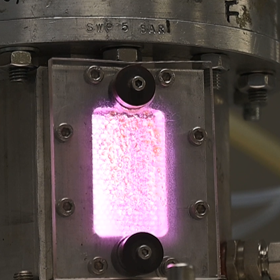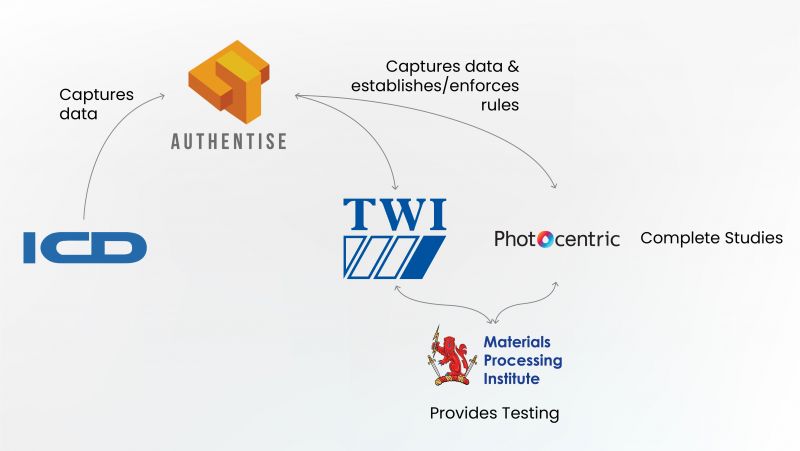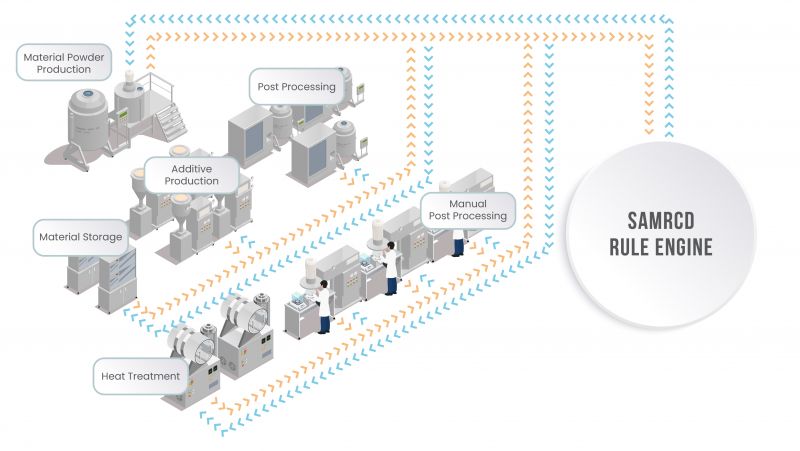Plasma Furnace offers new research capabilities
27 February 2026



The Materials Processing Institute is part of a consortium led by Authentise to develop new digital tools to extend in-process control from material production to delivery.
The project has been awarded a grant by the Industrial Strategy Challenge Fund (ISCF) for the development and validation of scalable digital tools to identify, create, and enforce rules that reduce direct and indirect energy consumption and increase material efficiency in ceramic and metal additive manufacturing (“AM”).
The Materials Processing Institute are joined by fellow project partners, Authentise, provider of data-driven workflow tools for additive manufacturing; Photocentric, innovator and manufacturer of photopolymers and LCD based 3D Printers; ICD, provider of metal powders and powder metal components; and TWI, a membership-based research and technology organisation.
The project, Scalable AM Rule Creation and Dissemination (SAMRCD) has been awarded £1.7 million in funding, with Authentise developing tools that enable users to identify operating rules through literature, standards, experiments, and deep learning, and enforce these rules on future production to ensure more efficient and repeatable products to develop tools that enable users to identify operating rules through literature, standards, experiments, and deep learning, and enforce these rules on future production to ensure more efficient and repeatable products.
To achieve this, the partners will integrate direct data capture from across the materials and production value chain, with TWI and Photocentric testing the tools in metal and ceramic AM studies with the aim of reducing energy and material use in production. The material and related production data will be supplied by ICD and results will be validated by the Materials Processing Institute.
“Continuing studies and analysis will only achieve so much,” says Andre Wegner, CEO of Authentise. “Digital tools that can monitor, analyse, predict and alert a range of impact and deviations in standard operating procedures are fundamental to improve manufacturing processes, increase repeatability and reduce resource intensity of the process. Additive manufacturing rightfully has a reputation as a clean technology, but there is so much more to be done.”
“This is the first time that the impacts of actions are considered across the entire value chain, from material production to final part,” says Carl Hauser, Section Manager - Laser Additive Manufacturing of TWI. “The SAMRCD team includes partners from across that spectrum. Together, we are able to increase the scope of in-process control from very specific in-machine processes to end-to-end monitoring. Changing material production parameters slightly may have a material impact on part production success, for instance. Thanks to SAMRCD we won’t only know that but will be able to take direct action.”
“We’re delighted to have been selected for this highly competitive programme by UKRI’s Transforming Foundation Industries challenge,” says Paul Holt, CEO of Photocentric. “The launch of SAMRCD could not come at a more poignant time given the current headwinds facing foundation and manufacturing industries with energy costs soaring and cost of materials increasing as supply chains compete for key metals.”
Bruce Adderley, director of UKRI’s Transforming Foundation Industries challenge, said: “Collaboration is the lynchpin for innovation across these industries, as the opportunities for mutual benefits, re-use of by-products and the exchange of knowledge and skills will be essential for ensuring their journey towards improving their efficiency and productivity to meet new market challenges.
We have seen from the quality of applications just how new technology and a commitment to combined thinking can work together to address some of the key issues affecting the sector. The development of the tools proposed within the SAMCRD project would make a profound impact in energy reduction and accelerate additive manufacturing as a viable sustainable production process as part of the UK's manufacturing capabilities.”
The SAMRCD project has received funding from Innovate UK under No 10002048
24 November 2021